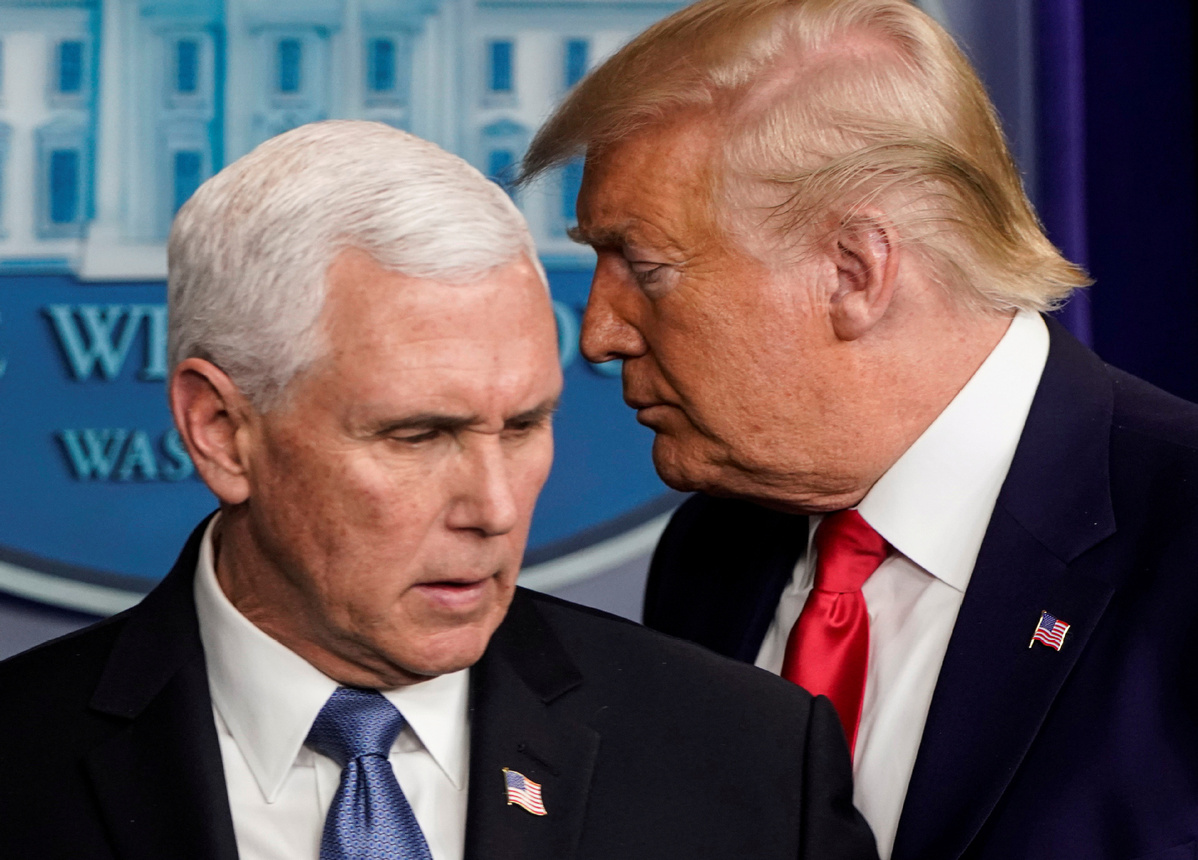Trump plans tighter screening after first US coronavirus deaths


Following the first deaths in the United States from the coronavirus, President Donald Trump announced Sunday that travelers from countries at high risk of the virus would be screened before leaving and upon arriving.
"Coronavirus: In addition to screening travelers "prior to boarding" from certain designated high risk countries, or areas within those countries, they will also be screened when they arrive in America. Thank you! @VP @SecAzar @CDCgov @CDCDirector," Trump said on Twitter early on Sunday.
Washington state declared an emergency after the first death in the US – a man in his 50s — from COVID-19 was reported Friday. On Sunday, a second man in his 70s died at the same facility in Kirkland, Washington, after the state reported two new cases, bringing its total up to 12.
The New York Times said the US total was 74 as of Sunday night.
Over the weekend, new cases of the infection were reported in California, Oregon and Rhode Island.
Two hospital workers in Northern California are being tested for the virus, according to local authorities. The two had been exposed to a patient at UC Davis Medical Center in Sacramento being treated for the virus.
"Due to the aggressive measures that public health and hospital staff undertook, all potential exposures to the case were promptly identified and isolated so that patients are not placed at higher risk," said Dr Bela Matyas, Solano County's health officer, according to the Sacramento Bee.
The two workers' tests will be sent to the US Centers for Disease Control and Prevention (CDC) for confirmation.
Santa Clara County health officials reported three new confirmed cases, bringing the county's total to seven.
Two of the new cases are a husband and wife who recently traveled to Egypt, authorities said. The other is a woman who officials said has chronic health conditions. All three were hospitalized.
"Our country is prepared for any circumstance. There is no reason to panic at all," Trump said, adding that he would meet with pharmaceutical companies at the White House on Monday to discuss efforts to develop a vaccine against the virus.
US Vice-President Mike Pence announced that an existing ban on travel from Iran had been expanded to include any foreign national who had visited the country within the past two weeks.
Americans also were advised not to visit Italy and South Korea.
Delta Air Lines announced Sunday that it would suspend flights between New York and Milan. American Airlines said Saturday it was suspending flights from Milan to New York and Miami amid a "reduction in demand".
The number of coronavirus cases worldwide is above 88,000 — with about 7,000 of those outside the Chinese mainland. The global death toll so far is nearly 3,000 dead.
Overall, China had 206 new confirmed cases on Sunday, the lowest since Jan 22. Hubei, the epicenter of the epidemic, had 196 new confirmed cases, the National Health Commission said Monday, sharply down from 570 cases a day earlier.
While the hot spots continued to record new cases, the list of countries affected by the illness climbed to 61 as Azerbaijan, Belarus, the Dominican Republic, Ecuador, Iceland, Lithuania, Mexico, the Netherlands, New Zealand, Nigeria, Qatar and Scotland reported their first cases.
South Korea, which has more than 3,700 cases — the highest number outside China — mobilized its army Saturday to disinfect large parts of Daegu, the southeastern city that has been at the center of the country's outbreak.
South Korean President Moon Jae-in said Sunday that "the COVID-19 outbreak can threaten our lives temporarily, but it cannot break our unity and hope".
Italy has reported more than 1,694 cases of infection and 34 deaths from the virus.
Iran, where the virus has killed more than 50 people, with nearly 1,000 confirmed cases, is preparing for the possibility of "tens of thousands" of people being tested for the virus.
At a news conference on Saturday, Japanese Prime Minister Shinzo Abe pledged to roll out the government's second emergency spending package within 10 days, using 270 billion yen ($2.5 billion) from the fiscal 2019 reserve fund. The first round of measures, worth 15.3 billion yen, was adopted in early February, according to The Japan Times.
A scaled-back marathon was held in Tokyo on Sunday. It was limited to 200 elite runners due to concerns over the outbreak of the virus in Japan.
With Tokyo set to host the 2020 Summer Olympics, Japan has taken extensive steps in a bid to halt the outbreak.
The World Health Organization increased the global risk assessment of the coronavirus on Friday to "very high", the organization's highest alert level.
"Worries are mounting that prolonged quarantines, supply chain disruptions and a sharp reduction in tourism and business travel could weaken the global economy or even cause a recession," according to ABC News.
But WHO Director-General Tedros Adhanom Ghebreyesus told CNBC's Hadley Gamble during a panel discussion in Riyadh, Saudi Arabia, on Sunday that "global markets … should calm down and try to see the reality. We need to continue to be rational."
Global stocks sustained their worst week since the 2008 financial crisis. The Dow Jones plunged 3,500 points, more than 12 percent, into a correction. It was the largest weekly point loss ever and biggest percentage drop in 12 years.
Andrew Cohen and William Hennelly in New York and Reuters contributed to this story.
































